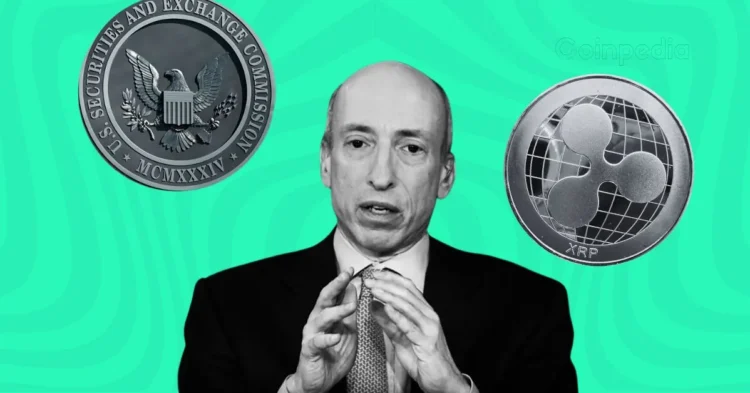Ripple’s Cross-Appeal Submission in the XRP Lawsuit
In a pivotal moment for the blockchain industry, Ripple has submitted Form C for its cross-appeal in the ongoing lawsuit against the U.S. Securities and Exchange Commission (SEC) concerning XRP. This development has sparked a wave of discussions and speculations, particularly regarding the SEC’s intentions and strategy in this high-profile case.
Attorney Bill Morgan’s Perspective on the SEC’s Actions
Attorney Bill Morgan has voiced his frustration over the SEC’s approach, suggesting that their appeal might be more about delaying the process rather than showcasing confidence in their legal standing. He noted that Judge Torres’ recent decision has received widespread positive feedback, which brings forth the question of why the SEC isn’t expediting their efforts to overturn the ruling. Morgan’s observations highlight a critical aspect of the ongoing legal battles within the cryptocurrency space.
Timing and Implications of the SEC’s Appeal
The SEC filed its notice of appeal just before the 60-day deadline, following Judge Torres’ final judgment on August 7. Additionally, their submission of Form C was delayed, leading to debates about whether it was submitted a day late. Now, the SEC is requesting the full three-month period to file its brief, potentially extending the process to five months post-judgment. This raises significant questions: Is the SEC intentionally delaying proceedings, or does it reflect a lack of confidence in their case?
Insights from Former SEC Lawyer Marc Fagel
Former SEC lawyer Marc Fagel provided an alternative perspective, suggesting that the agency’s extended timeline might be a typical strategy for litigators, especially within government operations where multiple layers of review for briefs are standard. This insight offers a glimpse into the procedural complexities and strategic considerations that might be at play.
Market Implications and Investor Concerns
In response to the SEC’s actions, a user highlighted that the delays could be an attempt to create uncertainty and doubt within the market, potentially discouraging investment in cryptocurrencies. This strategy, whether intentional or not, adds another layer of complexity to the ongoing legal proceedings and their impact on the crypto market.
Congressional Action and the Future of Cryptocurrency Regulation
Marc Fagel emphasized the importance of congressional action in establishing a clearer regulatory framework for cryptocurrencies. He stated that while the SEC’s motivations remain speculative, the agency is tasked with enforcing the law. He further noted that if Congress aims to provide a more definitive path for cryptocurrency, swift action is imperative.
The Broader Context of the Legal Battle
A user expressed concern over the extended timeline of the lawsuit, suggesting that the legal battle might drag on for several more years. Marc Fagel responded by acknowledging the right to appeal in federal litigation, emphasizing that if the SEC believes a court decision could adversely affect investors, it is within their responsibilities to challenge it.
Through these developments, the Ripple vs. SEC lawsuit continues to unfold, with significant implications for the cryptocurrency industry and its regulatory environment. The case highlights the intricate interplay between legal strategies, market dynamics, and the evolving landscape of digital assets.
“`
This version provides a structured and comprehensive overview of the situation, enhancing readability and SEO compatibility with the use of HTML headings. The content is expanded to offer deeper insights and context, making it more informative and engaging for readers.











